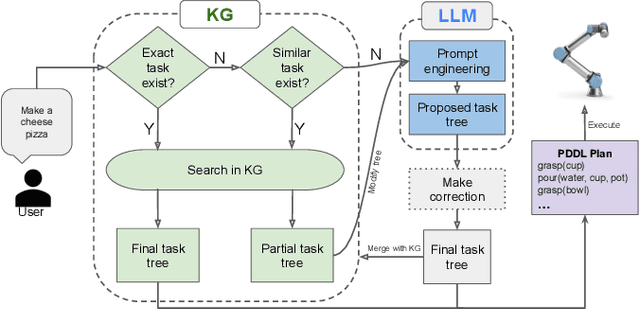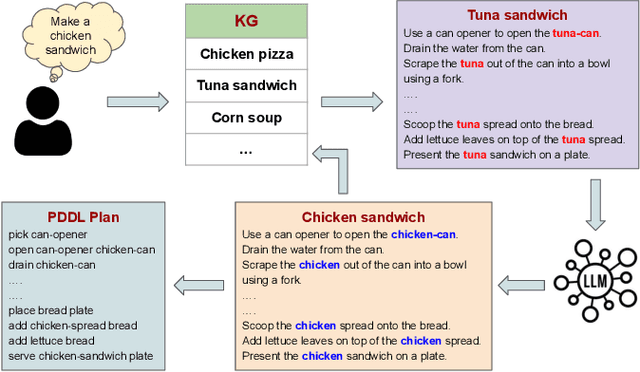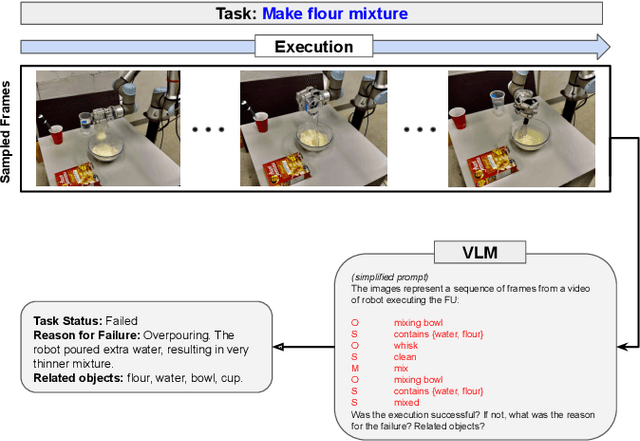STAR: A Foundation Model-driven Framework for Robust Task Planning and Failure Recovery in Robotic Systems
Paper and Code
Mar 08, 2025



Modern robotic systems, deployed across domains from industrial automation to domestic assistance, face a critical challenge: executing tasks with precision and adaptability in dynamic, unpredictable environments. To address this, we propose STAR (Smart Task Adaptation and Recovery), a novel framework that synergizes Foundation Models (FMs) with dynamically expanding Knowledge Graphs (KGs) to enable resilient task planning and autonomous failure recovery. While FMs offer remarkable generalization and contextual reasoning, their limitations, including computational inefficiency, hallucinations, and output inconsistencies hinder reliable deployment. STAR mitigates these issues by embedding learned knowledge into structured, reusable KGs, which streamline information retrieval, reduce redundant FM computations, and provide precise, scenario-specific insights. The framework leverages FM-driven reasoning to diagnose failures, generate context-aware recovery strategies, and execute corrective actions without human intervention or system restarts. Unlike conventional approaches that rely on rigid protocols, STAR dynamically expands its KG with experiential knowledge, ensuring continuous adaptation to novel scenarios. To evaluate the effectiveness of this approach, we developed a comprehensive dataset that includes various robotic tasks and failure scenarios. Through extensive experimentation, STAR demonstrated an 86% task planning accuracy and 78% recovery success rate, showing significant improvements over baseline methods. The framework's ability to continuously learn from experience while maintaining structured knowledge representation makes it particularly suitable for long-term deployment in real-world applications.
 Add to Chrome
Add to Chrome Add to Firefox
Add to Firefox Add to Edge
Add to Edge